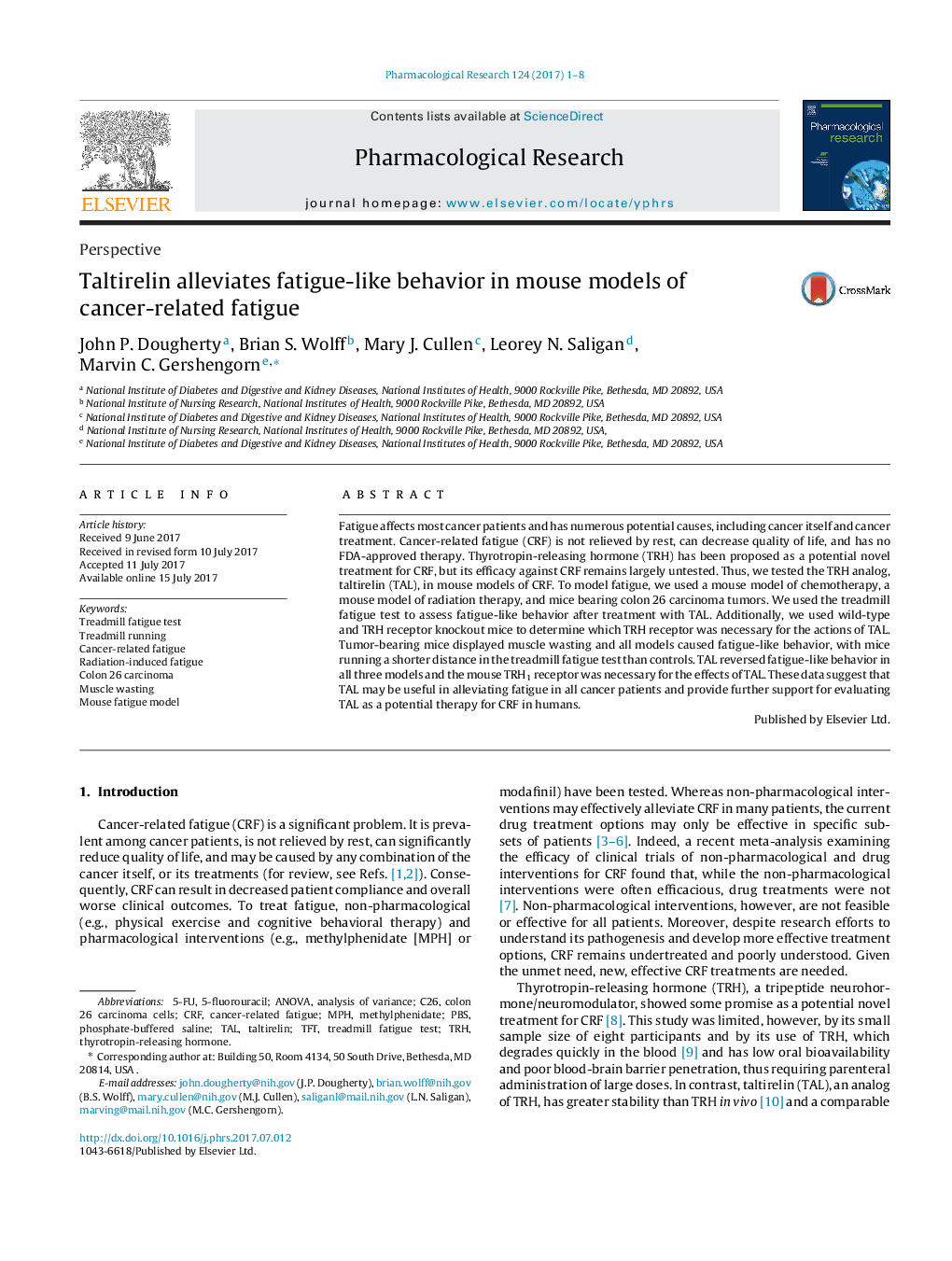| Article ID | Journal | Published Year | Pages | File Type |
|---|---|---|---|---|
| 5557249 | Pharmacological Research | 2017 | 8 Pages |
Fatigue affects most cancer patients and has numerous potential causes, including cancer itself and cancer treatment. Cancer-related fatigue (CRF) is not relieved by rest, can decrease quality of life, and has no FDA-approved therapy. Thyrotropin-releasing hormone (TRH) has been proposed as a potential novel treatment for CRF, but its efficacy against CRF remains largely untested. Thus, we tested the TRH analog, taltirelin (TAL), in mouse models of CRF. To model fatigue, we used a mouse model of chemotherapy, a mouse model of radiation therapy, and mice bearing colon 26 carcinoma tumors. We used the treadmill fatigue test to assess fatigue-like behavior after treatment with TAL. Additionally, we used wild-type and TRH receptor knockout mice to determine which TRH receptor was necessary for the actions of TAL. Tumor-bearing mice displayed muscle wasting and all models caused fatigue-like behavior, with mice running a shorter distance in the treadmill fatigue test than controls. TAL reversed fatigue-like behavior in all three models and the mouse TRH1 receptor was necessary for the effects of TAL. These data suggest that TAL may be useful in alleviating fatigue in all cancer patients and provide further support for evaluating TAL as a potential therapy for CRF in humans.
Graphical abstractDownload high-res image (157KB)Download full-size image
